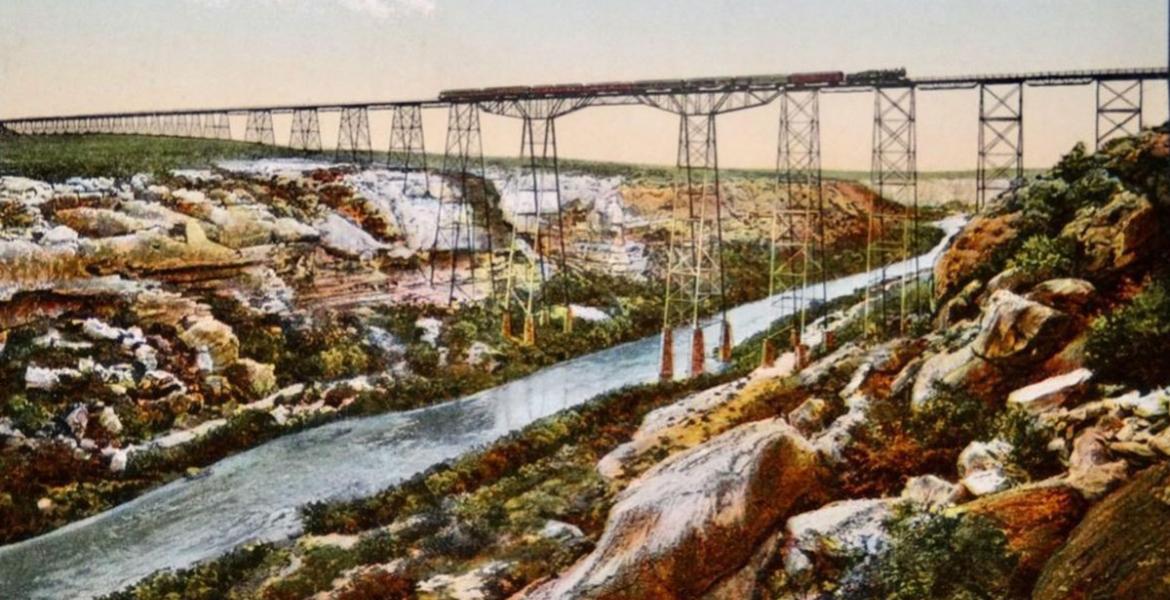OPINION — Two guest opinions appeared here recently discussing issues associated with the anticipated legislative fight over modifications to the state’s grant of eminent domain authority to private businesses, particularly oil and gas pipeline and electric utility companies. (See "With The Largest Oil Find In History in West Texas, Are Eminent Domain Laws Fair?" by Thure Cannon of the Texas Pipeline Association; and the opening piece, "Texas Landowners Subsidize Pipelines and Powerlines" by Brian McLaughlin, Texas and Southwestern Cattle Raisers Association director.)
We need electricity. We need oil and gas. We have to move them both around to use them. Oil and gas traveling in pipelines instead of on the highways means fewer highway fatalities, and reduced road wear due to fewer transport trucks on the road. The value of electrical transmission lines and oil and gas pipelines is clear enough. But who determines the value to our society and economy of each new line? How many pipelines is enough? What governmental entity actually engages in a careful analysis to determine that a new oil pipeline or electrical line benefits us?
The state has granted oil/gas pipeline and electrical utilities the power to take other people’s property through condemnation. Private for-profit companies are given the government’s power to take private property based on the assumption that the taking will be for the common good. It is an extraordinary delegation of governmental power. The power is enforceable by the courts and law enforcement officers. It does not matter whether the landowner agrees with the taking or not. If the condemnation occurs, the sheriff can come out and remove the landowner from his property under threat of jail time if he refuses.
A key element to the delegation of power is that the common good be served. But is it? Is there a fair and impartial determination made in a transparent process wherein all interested parties have the opportunity to present the case on the issue of the relative good of the condemnation? Or is the determination of “public good” a mere formality, part of a rubber-stamp process that never truly evaluates the costs and benefits of the exercise of the right of eminent domain? Is there any meaningful involvement by the affected landowners? I tend to think not on all counts.
Often the pipeline companies holding the right to condemn are subsidiaries of oil companies with a vested interest in getting their oil to markets at the cheapest rate possible. The interests of the oil companies and their subsidiaries may at times be aligned with those of the public good, but that is not always the case. The pipeline company’s interest is to make its owners a profit, despite what public relations departments and lobbyists may claim. While there is little doubt that there is public interest in having oil and gas available at a reasonable cost to consumers, there may be differences of opinion as to how that oil and gas should reach the market, how many pipelines are necessary to get it there, and where they are to be located. Are those differences in opinion being hashed out in the current process? I am not convinced they are.
Going beyond the need for and location of the lines themselves is the question of who is going to clean up the pipelines when the oil is gone, something I suspect receives little or no consideration when new lines are considered. We have tens of thousands of miles of pipelines crisscrossing Texas. What happens when they are no longer used?
Turning to the actual application of the condemnation power, the landowner does not have a “for sale” sign out, advertising the availability of a pipeline or electrical easement. As often as not, he is floored when he receives a letter telling him that he will be selling a piece of his property, or else. He has no choice in the matter.
In fact, by the time the landowner learns that his land is wanted, it is likely that someone from the pipeline or electrical company will have already come over his fences and onto his land without his knowledge or permission, and surveyed it. That is a violation of private property rights few of us would stomach, but which the target of the taking is expected to swallow without complaint.
The landowner receiving an “offer” letter from the pipeline company confronts a well-funded opposition telling him to sell, or be sued. Inherent is the prospect of the expense associated with a lawsuit. Yes, condemnation is a lawsuit. Indeed, the landowner’s first decision is often whether he wants to spend the money on an attorney, and involves the consideration of whether he will ever recover those costs if he does hire one. People hate hiring attorneys, and they hate even more paying their fees, and yet that is a very real imposition that condemnation places upon the landowner. The pipeline or electrical utility offer is in its barest essence a notice to “sell on terms we approve, or pay to fight us over how much we end up having to pay you.”
The situation is anything but the love-fest implicit in the recent letter from the pipeline companies’ spokesman. It is a nerve-wracking and expensive inconvenience that few among us would want to face, but that farmers and ranchers in our area are facing more and more frequently these days.
Because he is not a willing seller, the concept of “fair market value” being paid the landowner is, practically speaking, out the window. In fact, what others may have been paid for similar interests in condemnation situations typically cannot even be considered by the judge or jury in determining fair market value of the landowner’s interest being taken. In other words, where data of comparable land sales are available, they cannot be used in actual condemnation proceedings. The best evidence of fair market value is inadmissible, often to the landowner’s harm.
The statement is made that the landowner is paid market value, or more. That fails to mention that the amount eventually received usually only reaches a fair number after the landowner has paid thousands of dollars in legal fees and spent months of his own time fighting for that number. The initial offers made by the condemning companies to the landowners rarely reflect adequate compensation for the damages caused by the condemnation. They are usually lowball numbers. And the amount received often barely covers the income tax.
Once the issue of the payment is resolved, there still remains the effects of the construction on the owner’s farming or ranching activities. He has to worry about scheduling his agricultural activities to accommodate a pipeline or transmission line contractor, which contractor usually does not know the difference between “dip” and “drip.” The landowner cannot plan his plowing, his planting, his cultivation, his watering, his lambing or calving, or his pasture rotations while he waits for the utility company to decide when it will invade his property with men, equipment and supplies to build the pipeline or transmission line.
The desire to make a quick profit today, and the philosophy of “pump all that oil now,” seem to determine the outcome of the condemnation battle well before the landowner receives his fatuous “Landowner’s Bill of Rights” brochure from the pipeline company accompanying its letter notifying the landowner that his property has been targeted for condemnation. The landowners between the oil field tank battery in West Texas and the Gulf Coast refineries and ports end up bearing the heavy burden of the pipeline condemnations, whether compensated, or not. It is a broken process that imposes significant burden on the few, and a burden that few of us even recognize. Hopefully the legislature will see through the pipeline companies’ meringue to realize that the burden this process imposes upon farmers and ranchers across the state is anything but fair.
Subscribe to the LIVE! Daily
Required






Comments
Listed By: David Blumentritt
Call me skeptical, but this appears to be an attempt to disrupt the transportation and usage of fossil fuels, which is the target of the "keep it in the ground" environmental groups. In a quick search online regarding this topic, its all stories about protecting landowners rights, looking for another approach to achieve the goal of getting control of the "means of production" and replace the free market with the kind of crony capitalism of the past Obama administration. Texas leaders have been wise to foster the common carriers designation and supporting rules on governing pipeline access rights and the reality of the compensation landowner receives to prevent occurrences like the violent Dakota pipeline protests. Having just gone through this process I am very happy with the new pipeline that carries polypropylene from the producers to the transportation hub. The compensation was unbelievable for this access and they bent over backward to be courteous during installation. I got my pipeline bill of rights when I first met with the Landman after I had granted permission for a survey and was given an initial offer over 20x the appraised value. It is true that if you refuse any and all offers you risk having the property acquired by eminent domain, you will get at least the appraised value. I'm a strong advocate of property rights but this is not the type of threat thats worth bending a pick over. The real threats are the way the past administration manipulated the clean water and clean air acts at the federal level to control every aspect of water on your property , no matter how small and any emissions of greenhouse gasses including your cow farts.
- Log in or register to post comments
PermalinkListed By: Old Salt
Spoken like a person who has lived a semi long life, and gives a hoot about future generations and what we are leaving them. All your "compensation" is usless if you can't breathe, eat or drink clean water. Live it up!
Don't get me started on cronyism.
- Log in or register to post comments
PermalinkPost a comment to this article here: